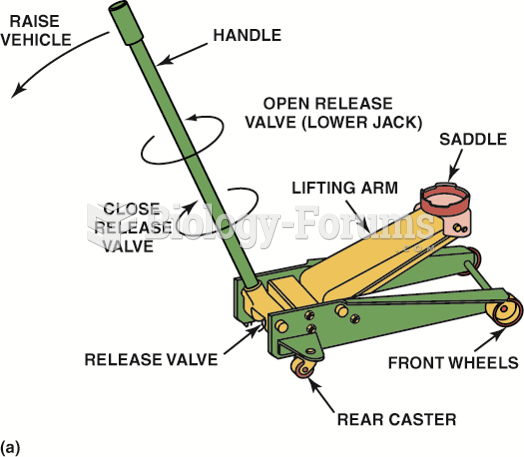|
|
|
According to animal studies, the typical American diet is damaging to the liver and may result in allergies, low energy, digestive problems, and a lack of ability to detoxify harmful substances.
Only 12 hours after an egg cell is fertilized by a sperm cell, the egg cell starts to divide. As it continues to divide, it moves along the fallopian tube toward the uterus at about 1 inch per day.
Pope Sylvester II tried to introduce Arabic numbers into Europe between the years 999 and 1003, but their use did not catch on for a few more centuries, and Roman numerals continued to be the primary number system.
Most women experience menopause in their 50s. However, in 1994, an Italian woman gave birth to a baby boy when she was 61 years old.
The shortest mature adult human of whom there is independent evidence was Gul Mohammed in India. In 1990, he was measured in New Delhi and stood 22.5 inches tall.
 If a cylinder(s) is lower than most of the others, use an oil can and use two squirts of engine oil ...
If a cylinder(s) is lower than most of the others, use an oil can and use two squirts of engine oil ...
 Cylinder 1 slit signals the computer the piston position for cylinder 1. The 1-degree slits provide ...
Cylinder 1 slit signals the computer the piston position for cylinder 1. The 1-degree slits provide ...





